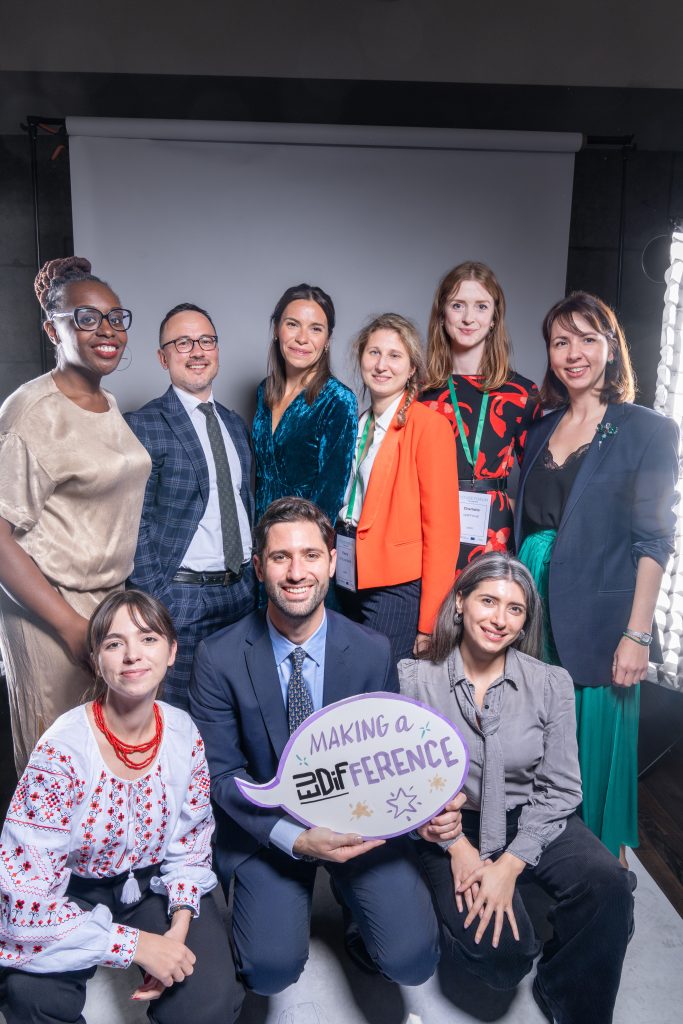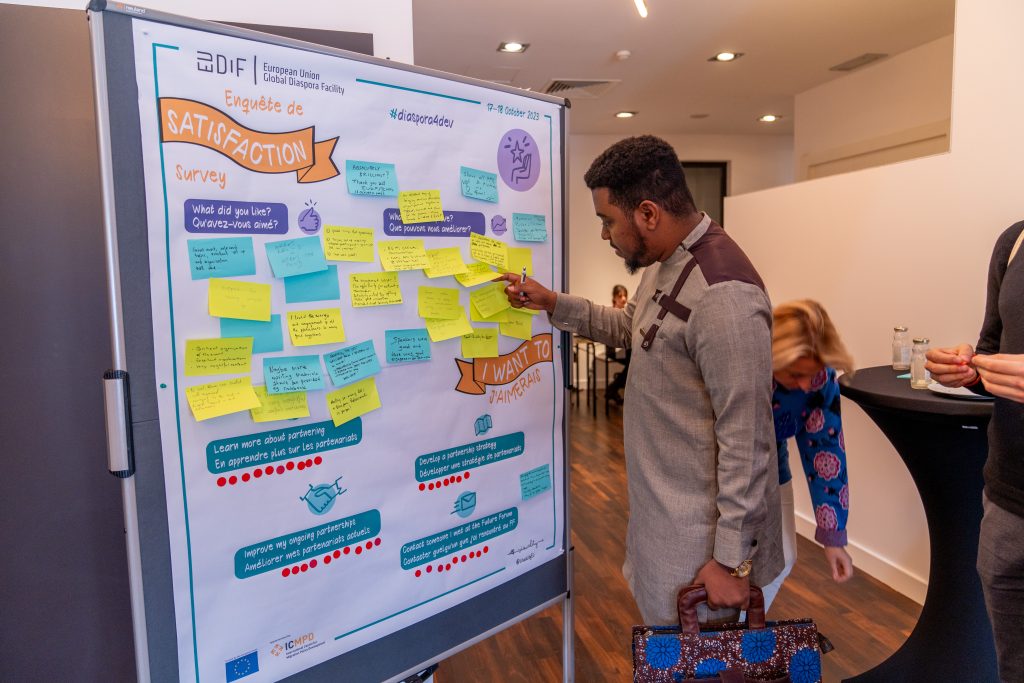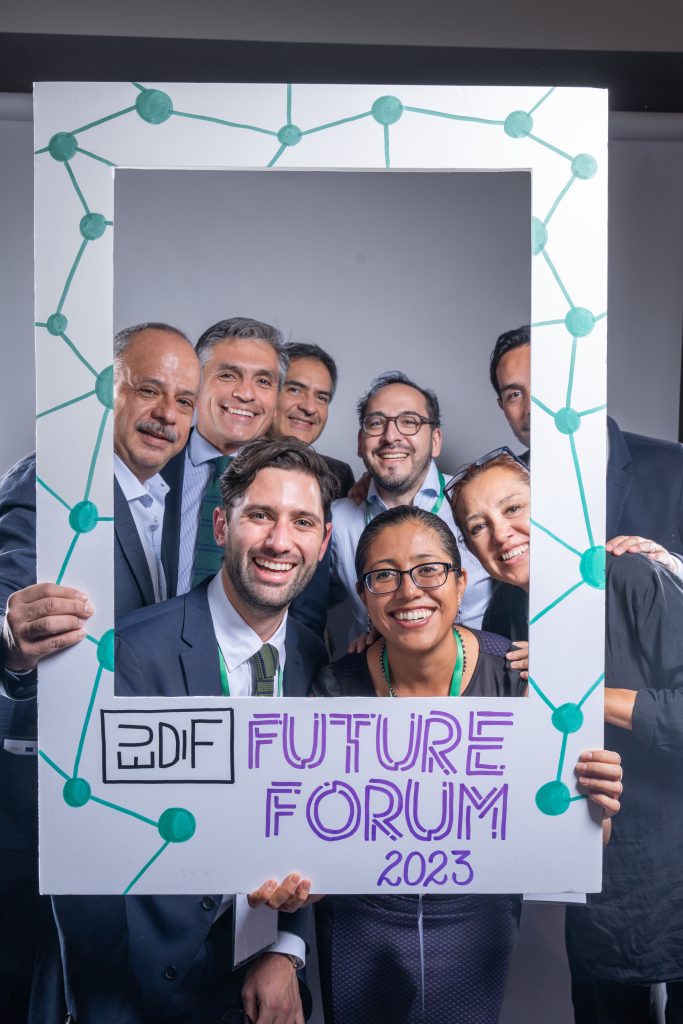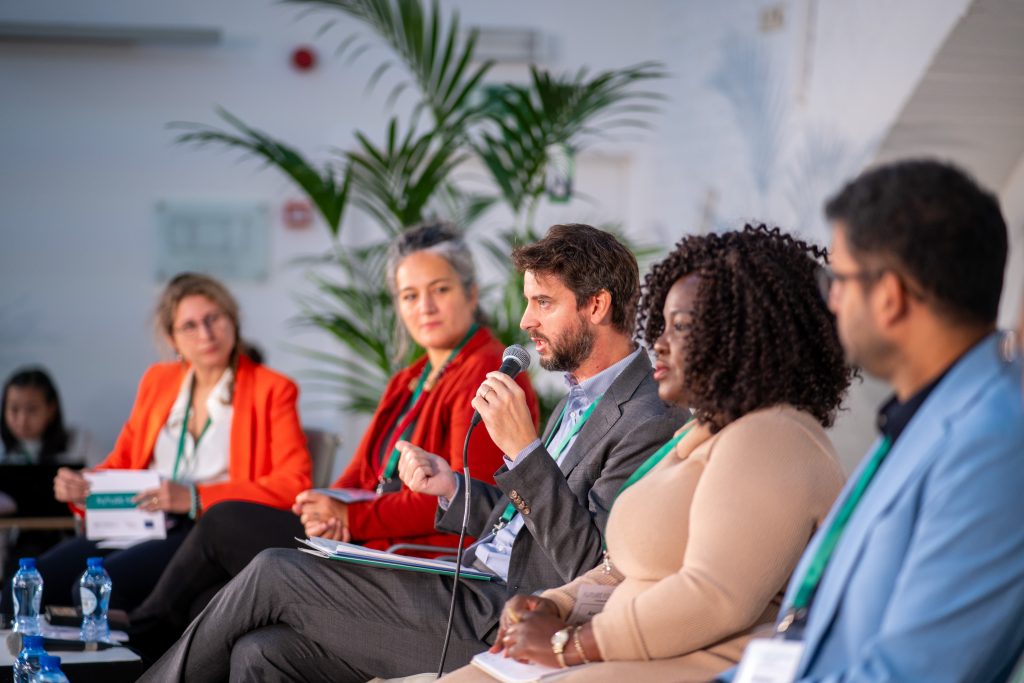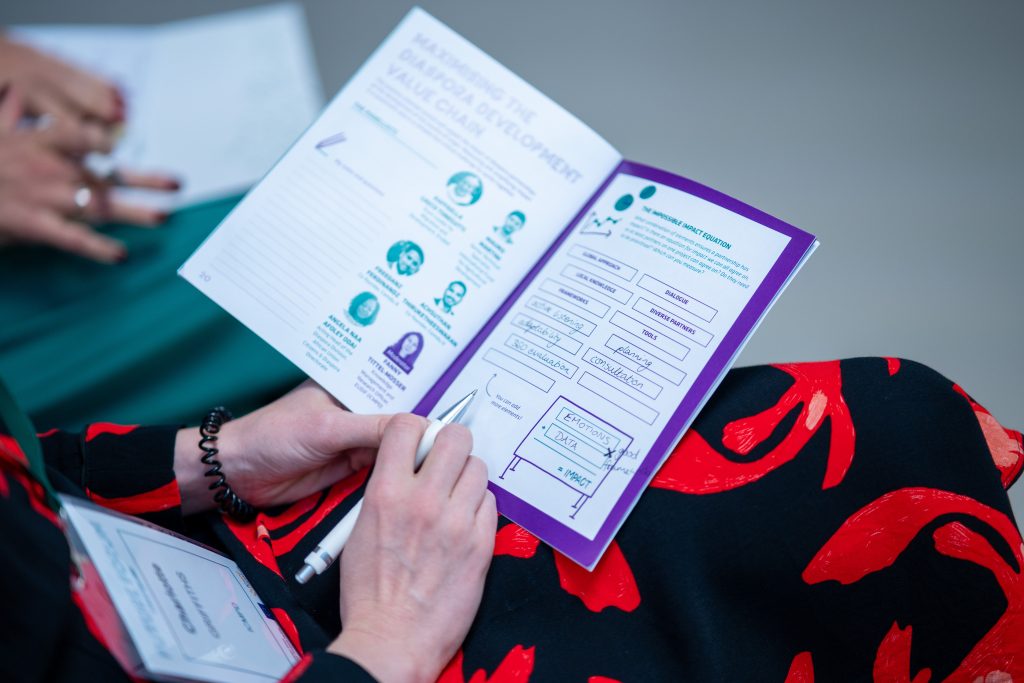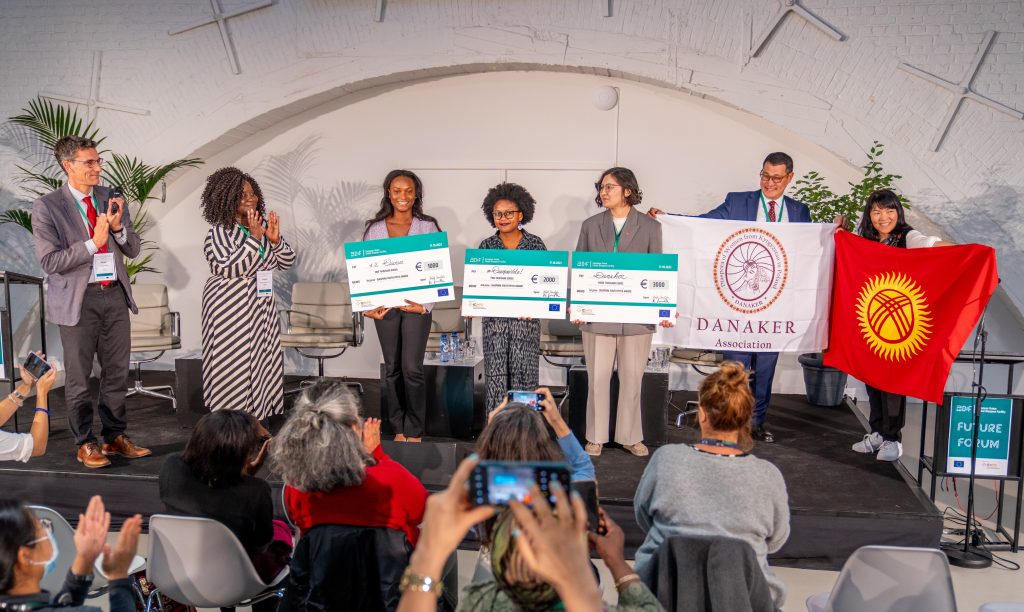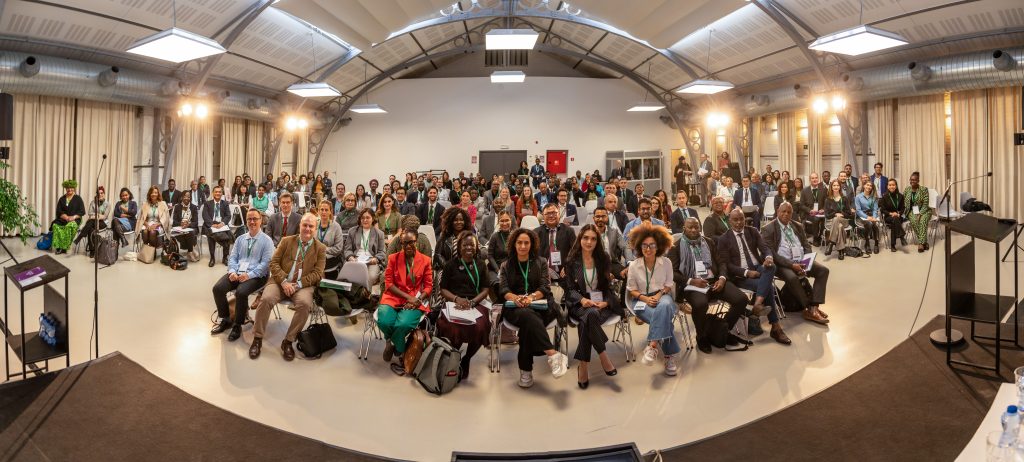
On October 17 and 18, nearly 200 gathered at the Royal Flemish Theatre in Brussels for the third Future Forum, the first in person. A week after the conference, Gia, former youth intern and member of the 2023 Advisory Committee, shares her highlights.
Each year, the Future Forum is a celebration of diversity and unity as participants from diaspora organisations, governments, international organisations and more come together to share and discuss diaspora engagement for development. The 2023 edition was framed around the lifeblood of diaspora engagement: partnership. One of EUDiF’s most valuable partnerships is through the diaspora youth internship and we are thrilled to maintain a strong relationship with alumni of the programme. One of these talented individuals, Maria Regina Tongson (Gia), took on a new role in the 2023 Future Forum as part of the Advisory Committee.
A few days after the conference, we sat down with Gia. who has seen the evolution of the Future Forum over the years and the different ways diaspora youth have been platformed during the conference…
Gia, you were an intern for the first Future Forum when you designed and led a session on diasporic identity and youth engagement, you then acted as a youth rapporteur at the second Future Forum. This year you represented youth on the conference’s Advisory Committee which included acting as a judge for the Diaspora Youth Pitch Competition, and helping to wrap up the conference alongside ICMPD’s Director Ralph Genetzke, representative of the Spanish Presidency’s Tamar San Miguel and the European Commission’s Francesco Luciani. Having played crucial roles in all three conferences, what did you think of the 2023 edition? Do you have any particular highlights?
What really stood out for me this year is the focus on partnerships and the many ways the EUDiF team tried to facilitate concrete ways for the audience to reflect on their current partnerships, see how the people in the room can help fill in their needs, and hopefully start new partnerships. It was not only an opportunity to network and meet people, but to start conversations that they will continue after the Future Forum.
The most concrete – and unplanned! – example of this was with the Diaspora Youth Pitch Competition. In their pitches, the finalists explained their organisational needs, and audience members with resources immediately expressed their interest in supporting them! During dinner I had a chat with some of the finalists who told me that this kind of support is not only helpful for their organisations’ operations, but also a great motivation booster, reminding them of the importance of the work they do for their diaspora communities here in Europe. It also shows me that partnerships can grow from simple encounters and that there’s great potential in creating new partnerships simply by bringing people together and giving them space to talk.
This is your third Future Forum, and the first to be held in person. How was it to finally be in the room rather than online?
There are so many conferences every year, but for me the EUDiF Future Forum was truly an experience, from the beautiful venue (KVS, the Royal Flemish Theatre which has an exciting cultural programme!) to the agenda to the finishing touches like the Ghanaian food in the evening and the special musical playlist. I really liked the small touches, like the polls and the photo booth, which encouraged people to interact with each other. The atmosphere was warm and energised all throughout. I saw conference participants exchanging not only handshakes and professional pleasantries, but also friendly hugs and personal stories of their diaspora experiences.
When closing the conference, you made suggestions to policymakers on behalf of the youth participants at the conference, what were those suggestions, and which is the most important for you personally?
The suggestions I made to the policymakers were born out of conversations I had with the other diaspora youth who were present in the room. We talked about their experiences running diaspora organisations as youth leaders, and it quickly became clear that they had some immediate needs. First, they requested training opportunities – a suggestion that resonated with me a lot, perhaps because I started out as a Capacity Development Intern at EUDiF, and I now work on skills policies. The diaspora youth mentioned that they would like to have training on specific topics, such as project management, fundraising, financial management and stakeholder engagement, as these are skills that could help their budding projects or organisations survive. Diaspora youth are already a source of so much innovation and so many new ideas, so we can only imagine how so much more of this ingenuity could be unlocked over time as they gain more knowledge and hone their skills.
In addition, the diaspora youth during the Future Forum requested flexible and easy-to-access funding, as these diaspora organisations – no matter how small – are in need of offices, websites and materials to run their activities. Last but not the least, they emphasised the need for diaspora youth to have seats at decision-making tables to continuously provide input into political decisions and ensure that the needs of diaspora youth are reflected in diaspora engagement policies.
Importantly, the other diaspora youth and I wanted to emphasise the need for inclusivity and representation when providing these training opportunities, funding, and seats at decision-making tables. We hope that when organisations, institutions, or companies want to forge partnerships with diaspora youth, they also make it a point to reach out to communities, nationalities, identities, genders, religions, and backgrounds that are often underrepresented and unheard, since these are groups that are more likely to need urgent support.
Even though this year’s Future Forum is now over, there are equally exciting things to look forward to, such as the second phase of EUDiF. What would you like to see related to diaspora youth in this next chapter of the project?
The second phase of EUDiF is such exciting news! The continuation of the project is proof of the immense value that diaspora communities bring to both their countries of heritage and residence. In the first phase of EUDiF, we’ve already had many opportunities to bring the youth perspective on board – from the diaspora youth internship programme, to the different ways diaspora youth have been platformed at every Future Forum. I would definitely love to see these efforts continue well into the second phase. Additionally, it could perhaps be very interesting to have a first diaspora youth-led organisation supported under the Capacity Development Lab, or to deploy a diaspora youth professional through the Diaspora Professionals 4 Development (DP4D) mechanism! I think these would definitely take EUDiF’s steadfast engagement with diaspora youth to new heights, and I personally cannot wait to see how the next phase of the project unfolds.
Thank you Gia, it’s great to hear your highlights. Thank you for everything you have done for EUDiF and the Future Forum over the past three years!
